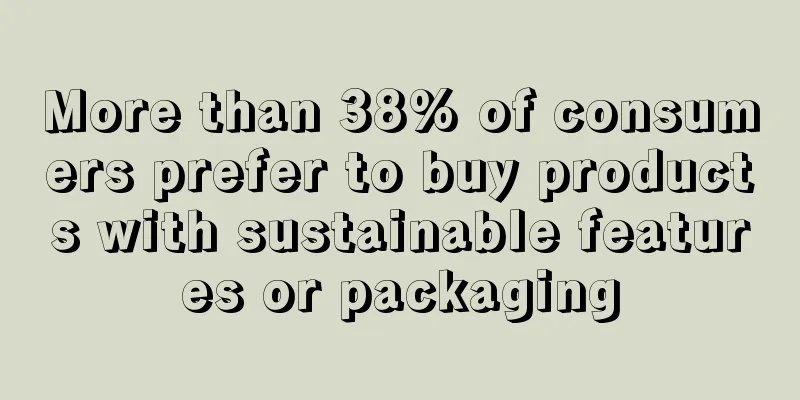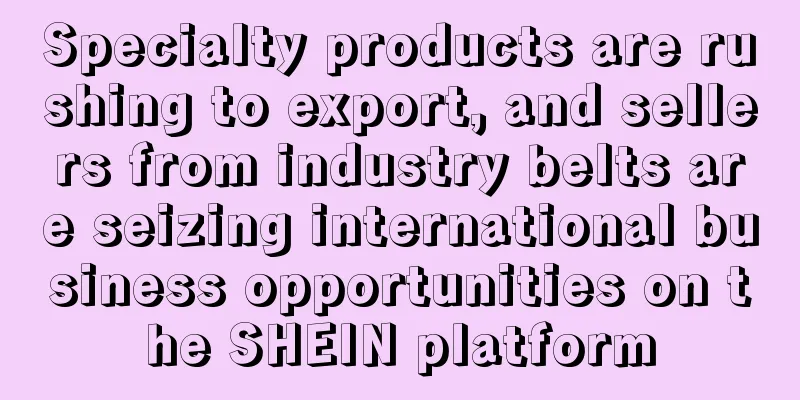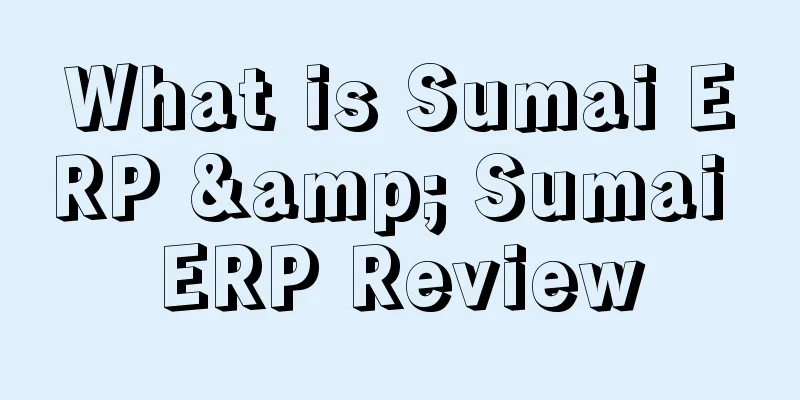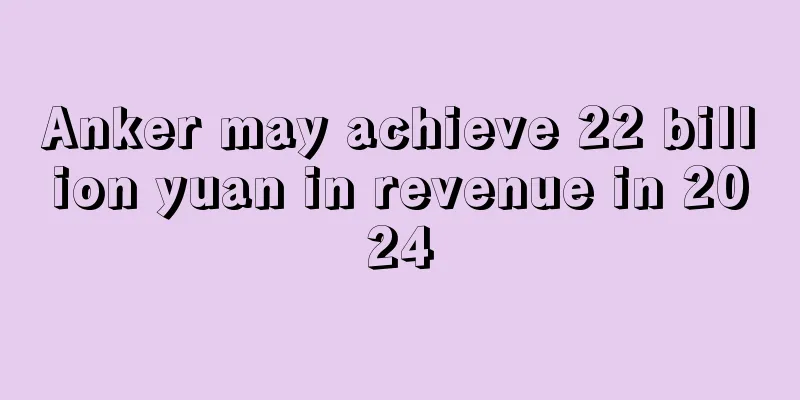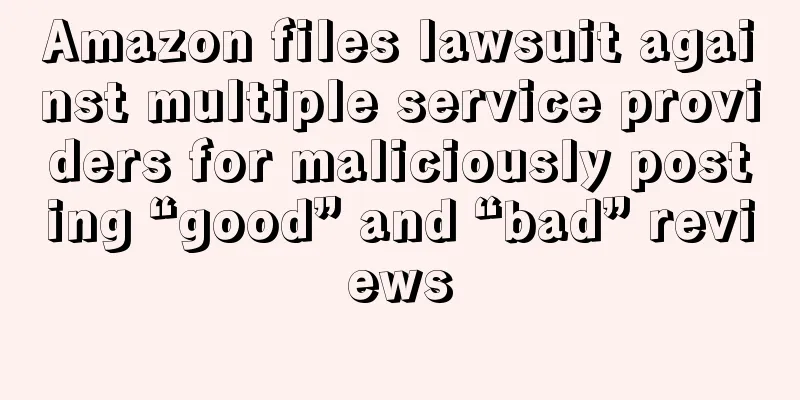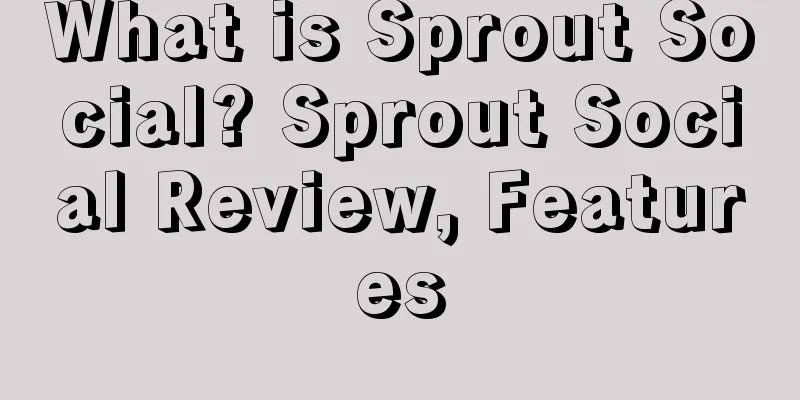Warning! A group of sellers were sued, and Amazon was the hardest hit
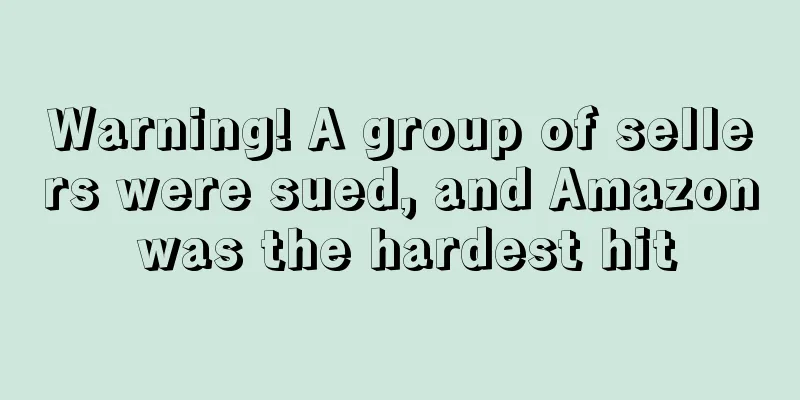
|
When it comes to complaints, sellers usually think of copyright infringement. In fact, there is another hidden factor in the cross-border e-commerce circle - California Proposition 65. Compared with copyright infringement, it is not common, so sellers can easily ignore it. When receiving a complaint email, they fail to handle it in time, resulting in the removal of the link and the freezing of funds. However, the law firms that profit from this have made a lot of money. It is worth mentioning that such cases not only occur on the Amazon platform, but all platform sellers selling to California are at risk of being complained.
A group of sellers were complained about for stepping into the trap of "Proposition 65"
Recently, Amazon seller Toby told Yien.com that they were extorted $15,000 by a foreign law firm, which was a very unfair payment.
In April, their after-sales mailbox received an email, which showed that a US law firm conducted batch testing of their products and found that the mercury content of each product exceeded the standard, violating "California Proposition 65" and could not be sold in California. If they wanted to continue selling, they would have to pay tens of thousands of dollars to settle privately.
"They specialize in handling this kind of consumer rights in bulk," said Toby. The sample purchasing accounts of these law firms often buy products from hundreds of sellers at a time, and they specifically pick those with good sales.
Toby was targeted in a large-scale sweep last year. "They couldn't contact us before, so they sent an email to the after-sales email address." Toby said that the steps of these law firms are very clear, and sellers cannot escape once they are targeted.
Therefore, Toby finally had no choice but to pay to avoid disaster, and after many negotiations, he negotiated the settlement amount to $15,000.
After investigation, Yien.com found that there are quite a few sellers who have fallen into the trap of "California Proposition 65", including those on Amazon and other platforms such as Wish.
Enforcement of Proposition 65 is extremely challenging for online sellers. This is especially true for Amazon sellers, as statistics show that Amazon sellers account for a large portion of Proposition 65 "intent to sue" notices.
They can often be seen complaining in forums, communities and other places where sellers gather.
“——I received an email today about violating Proposition 65, and was asked to respond within a week, or my account would be closed and my funds frozen;
——I received an email from the other party’s law firm more than 20 days ago, but I have not responded to them. Now I received a performance notice from the platform saying that the account funds have been frozen and asked me to contact Amazon’s lawyers;
——The emails I received last week were frozen this week. ”
So, what is California Proposition 65?
California Proposition 65, originally named the "Safe Drinking Water and Toxic Enforcement Act of 1986," is a grassroots initiative to protect consumers from toxic substances and chemicals in drinking water. Proposition 65 lists over 1,000 chemicals (with more added every year) that have been linked to cancer and birth defects, and the law requires any consumer product sold in California to disclose a warning label if it contains trace amounts of the above chemicals.
What product categories does California Proposition 65 apply to?
It is important for sellers to understand what products need to comply with California Proposition 65. The following product categories are covered by the proposal (partial):
Apparel and textiles, leather goods, food contact materials, toys, child care products, children's jewelry, sports equipment, cosmetics and personal care products, electronics, batteries, furniture, holiday lights, motor vehicle parts, leisure boats and other pleasure craft.
Proposition 65 was originally intended to protect consumers from toxic substances and chemicals, but it has become a tool for rogue law firms and unscrupulous individuals to make money.
Rogue law firms siphon off sellers, making millions of dollars a year
Proposition 65 allows California government officials, nonprofits, law firms and individuals to file enforcement lawsuits, which gives rogue law firms an opportunity to take advantage of it. The most common law firms include Brodsky & Smith, California Citizens Protection Group LLC, Center for Environmental Health, The Chanler Group, Ecological Alliance LLC, Shefa LMV LLC, and others.
They buy products on the platform, test them for chemicals listed under Proposition 65, and issue a 60-day notice to the seller and the platform. On average, Amazon receives about three such notices per week. About 8-10% of Proposition 65 notices involve products on Amazon.
Rogue law firms have only one ultimate goal – settlement money.
In Proposition 65 cases involving the sale of consumer goods on Amazon, most lawyers negotiate settlements between $10,000 and $20,000. Law firms typically receive 90% of the settlement. How could law firms not flock to such a high-profit, risk-free, and legal business?
And if the seller doesn’t resolve the issue within 60 days and files a lawsuit, the average settlement soars to $40,000 to $90,000. And that doesn’t include attorney fees.
Rogue law firms make millions of dollars every year from these settlements.
Sellers who have "dealt with" these law firms have reported that there is not much room for bargaining on the settlement money at present, and that there is a trend of increasing.
It is reported that the settlement amount for Proposition 65 was 8,000 US dollars last year, but it increased to 10,000 US dollars at the beginning of this year, and now it is generally 15,000 US dollars.
Therefore, some people suggest that sellers try to negotiate with the law firm themselves, because even if they find a lawyer, the settlement amount will not be reduced much, and they still have to bear the attorney fees.
In addition, sellers can avoid being ripped off by certain domestic institutions by negotiating on their own. “The matter has not been resolved yet, but they are charging high attorney fees and agency fees,” one seller complained.
Compared with infringement complaints, Proposition 65 complaints are not common, so sellers can easily overlook them. Previously, many sellers have had their listings removed and their funds frozen due to failure to handle cases in a timely manner, causing great losses to the sellers, so this issue must be taken seriously.
Preventive measures should be taken and warning labels should be posted
California is the most economically developed state in the United States. It not only has well-known big cities such as Los Angeles and San Francisco, but also the famous Silicon Valley and Hollywood . Its GDP is higher than that of the United Kingdom. With the blessing of economic strength, the purchase volume and purchasing power of California residents are both very strong, so it is difficult for sellers to give up orders here.
However, sellers are now receiving more and more complaints about Proposition 65. Data shows that in 2020, 749 Amazon sellers received such complaints, an increase of 12% from the previous year.
When faced with this type of complaint, sellers generally have only two options: one is to settle, and the other is to abandon the store. Responding to the lawsuit is the worst option. Like infringement complaints, this process is time-consuming, labor-intensive, and costly. Moreover, the rogue law firm seized the loophole based on Proposition 65, which is legal and compliant, so the probability of the seller winning the case is also extremely low.
In the face of this situation, the currently known effective preventive measure is to affix warning labels as required by the proposal.
A Proposition 65 warning includes three main items: the warning symbol, the word "Warning," and the warning statement.
The warning symbol must consist of a black exclamation mark in a yellow or white triangle with a bold black outline. The symbol is to be placed to the left of the warning text and statement. The size of the symbol should match the height of the word "Warning".
The word "Warning" must be in capital letters and boldface. There are different types of warning statements, depending on whether the product may cause exposure to listed carcinogens and listed reproductive toxicants.
The following is a sample format for a warning statement regarding listed carcinogens in a product :
“WARNING: This product can expose you to chemicals including [name of chemical or chemicals], which is known to the State of California to cause cancer. For more information, visit www.P65Warnings.ca.gov.”
It is worth mentioning that some sellers directly put warning labels on their products regardless of whether they violate Proposition 65. This is unwise because it is very detrimental to marketing. After all, if two identical products are placed in front of consumers, the one without a warning label is obviously more popular.
And putting up warning labels is not foolproof. One seller said that he put up warning labels, but was still sued. " They directly tore off my warning label, took photos for evidence, and sued in court. Amazon didn't even look at the products in the warehouse, but only looked at the court summons. " |
Recommend
Affected by the epidemic, many businesses are considering canceling Black Friday activities
There are less than 100 days left until Black Fri...
What is EC EXPRESS? EC EXPRESS Review, Features
EC EXPRESS is a high-quality brand of cross-border...
What is Sprinter? Sprinter Review, Features
Founded in 1995, Sprinter is one of Spain's l...
A Jiangxi boss switched from domestic trade to foreign trade in just one year and exported raincoats to Alibaba International Station with annual sales of nearly 10 million
"My biggest achievement at Alibaba Internati...
What is the People's Bank of China? People's Bank of China Review, Features
The People's Bank of China , the central bank...
What is Shixin Huida Freight? Shixin Huida Freight Review, Features
Shixin Huida Freight provides one-stop logistics ...
Vaccine-themed products are popular on Etsy, and sellers are saying they are really good!
During the pandemic, sales of masks on Etsy skyro...
What is Walrus Crossing the Border? Walrus Crossing the Border Review, Features
Walrus Cross-border is a company that focuses on A...
Walmart's automatic order cancellation time is shortened! How to avoid affecting performance? Official suggestions
Recently, Walmart stated in an email to sellers t...
Nearly 1,000 Chinese-made bicycle helmets recalled due to risk of head injury!
Recently, the U.S. Consumer Product Safety Commis...
What is BIYA Pay? BIYA Pay Review, Features
BIYA Pay focuses on providing users with financial...
Amazon has acquired more than 100 companies! Beyond the platform, Amazon wants to do more
Recently, according to foreign media reports, in ...
Shopee releases Southeast Asia Generation Z research report: Nearly 70% of Generation Z use shelf e-commerce to discover and research good products
Recently, Shopee, a leading e-commerce platform i...
Indonesian logistics company Anteraja achieves another success with increased shipments in the first quarter
Anteraja, a technology-based courier service comp...
What is Frontier Car Group (FCG)? Frontier Car Group (FCG) Review, Features
Frontier Car Group (FCG) is a Berlin-based startu...
